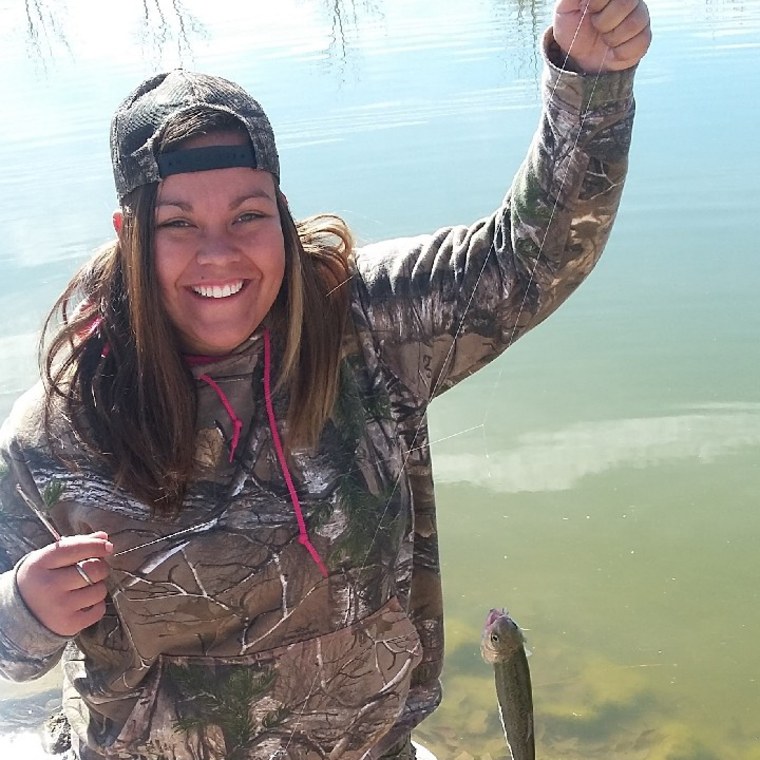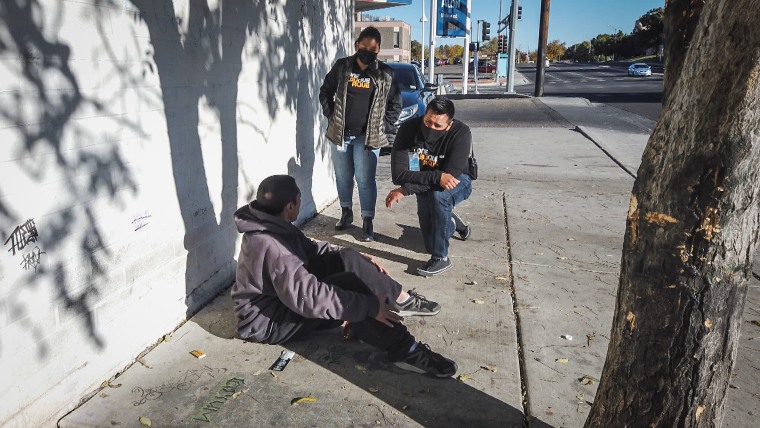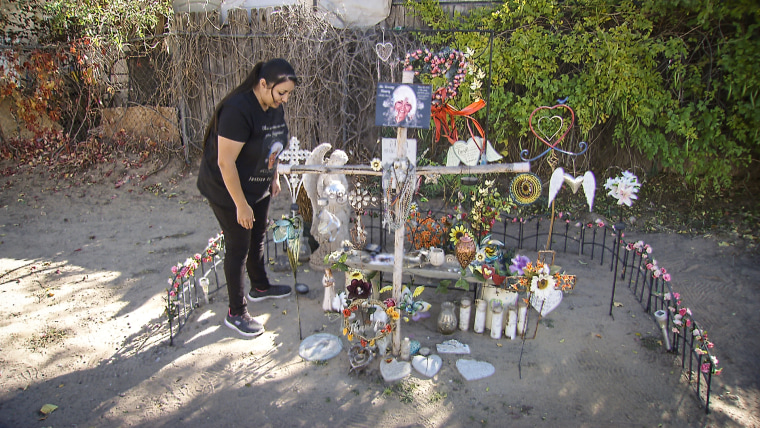ALBUQUERQUE, N.M. — Elisha Lucero, who had mental health issues for years after a brain tumor diagnosis, was killed by Bernalillo County sheriff’s deputies after they shot her more than 20 times.
Lucero, 28, had become increasingly agitated on July 21, 2019, and her behavior grew so worrisome that her family called 911, hoping she would be taken to the hospital.

“That was one of the biggest mistakes that we made, because Elisha’s not here today,” her sister Elaine Maestas said. “That call’s result was my little sister — who only stood 4 feet, 11 inches tall with her shoes on — being shot 21 times by the men who were called to help her.”
The Bernalillo County Sheriff’s Office settled a lawsuit with Lucero’s family last year. In a statement provided to KOB4, the NBC affiliate in Albuquerque, Sheriff Manny Gonzales said, “BCSO’s commitment is to protecting children and families, and as such, we responded legally and appropriately while in communication with the family to protect the welfare of all involved. Our condolences are with the family for their loss.”
Now, Albuquerque is changing the way it responds to 911 calls like the one Maestas placed for her sister. In addition to police and paramedics, residents have access to a third branch of public safety: behavioral health responders.
“We’re not law enforcement, so we’re not here to cite you,” said Mariela Ruiz-Angel, director of Albuquerque Community Safety, or ACS, an independent agency alongside the police and fire departments that can be sent out by 911 dispatchers. “We’re just here to check on you. How can we help?”
With one of the highest rates of fatal police encounters in the nation, New Mexico has been under Department of Justice supervision since 2014. A DOJ investigation found the Albuquerque Police Department routinely engaged in excessive and deadly force, including against people with mental illness.

The city created ACS as an alternative solution. ACS recruits and trains members with backgrounds in social work, counseling and peer support. Two-person behavioral health teams are dispatched when nonviolent and nonmedical emergencies arise and are equipped with training to assess situations like mental health crises.
The units also are stocked with water, snacks, blankets and hand warmers.
In New Mexico, the likelihood of incarceration over hospitalization for people with mental illness is about 3-to-1. To change those numbers, the new department is tasked with trying to address the fundamental problems that drive the city’s social ills, including mental illness, addiction and lack of shelter.
“I definitely think that ACS will assist us in reducing the number of people with behavioral health issues who are arrested,” said Lt. Matt Dietzel of the Albuquerque Police Department’s crisis intervention section.
Isaiah Curtis, a behavioral health responder, said squatters who have taken up residence in empty buildings are a particular challenge for the teams, requiring a combination of tactical and clinical training.
“We’re trained to stay away from the door, to knock softly, to speak in a gentle voice,” he said recently as he made his rounds in downtown Albuquerque. “We want to make sure the person’s safe. After that, we start talking about their behavioral health concerns. From there, we want to see … what type of services would be most appropriate for them.”
Should behavioral health responders find themselves in possible danger, they’re prepared to call police for backup and enforcement, Ruiz-Angel said. But in the program’s first six weeks, “no call has gone sideways.”
Albuquerque is one of several U.S. cities adopting alternatives to a traditional police response, including Denver, San Francisco and Eugene, Oregon. But unlike in the other cities, the initiative is not a pilot or temporary program but a standalone department.

“It was not a program that we started within the fire department or the police department,” Ruiz-Angel said. “I hope, you know, we work with cities across the nation. Hopefully, as a nation, we can really solidify this model of an alternative response.”
“In Loving Memory of Elisha Lucero,” read a sign at a roadside memorial in Albuquerque constructed by her family. The memorial includes a quote from the movie "Lilo and Stitch," which read: “Ohana means family. ... Family means no one gets left behind or forgotten.”
“If we could change the way that these calls are handled, it can save somebody else’s,” Maestas said. “And it will.”
